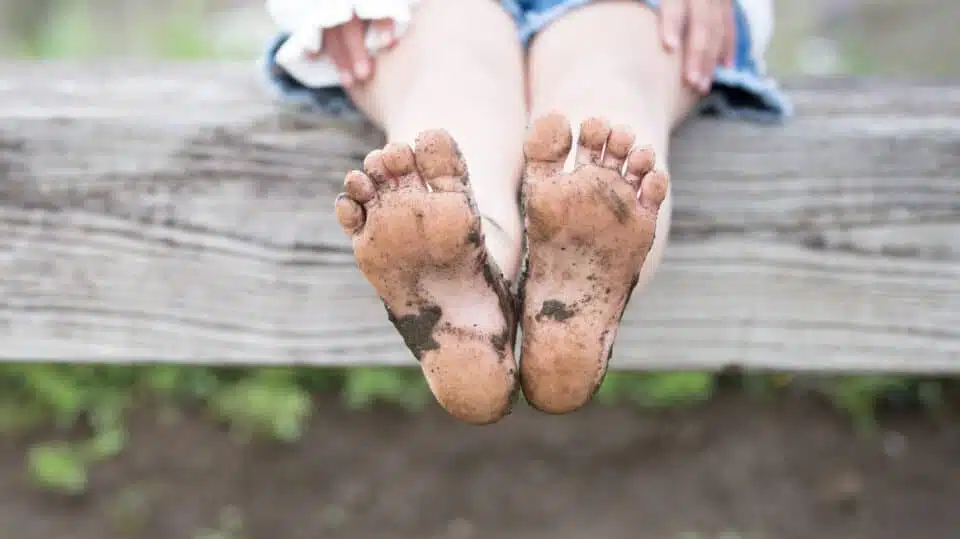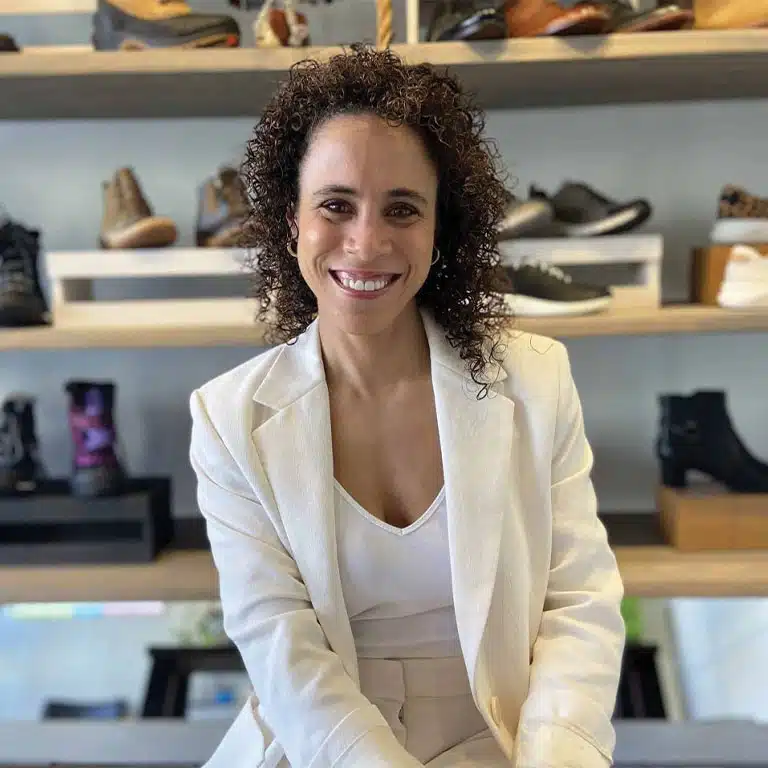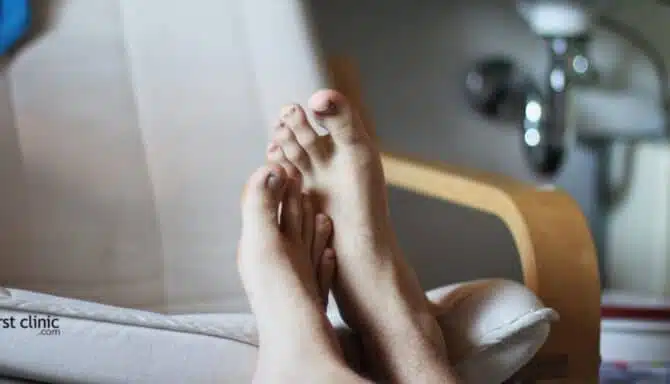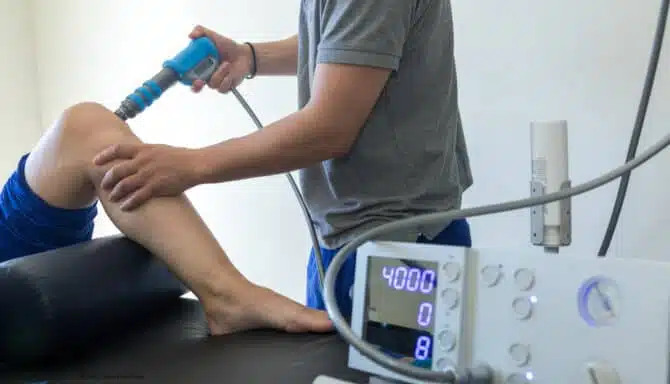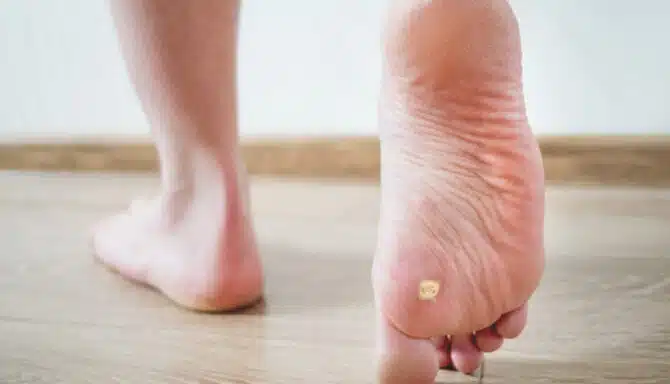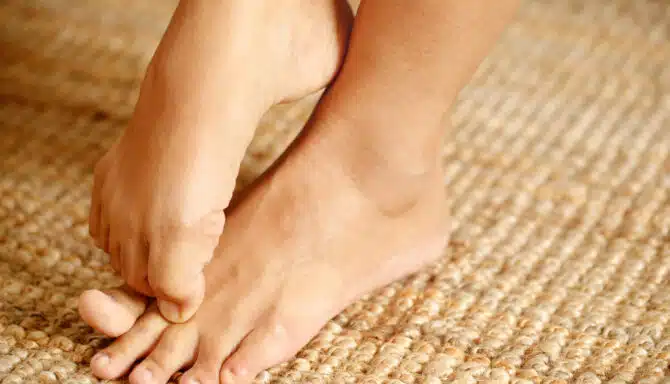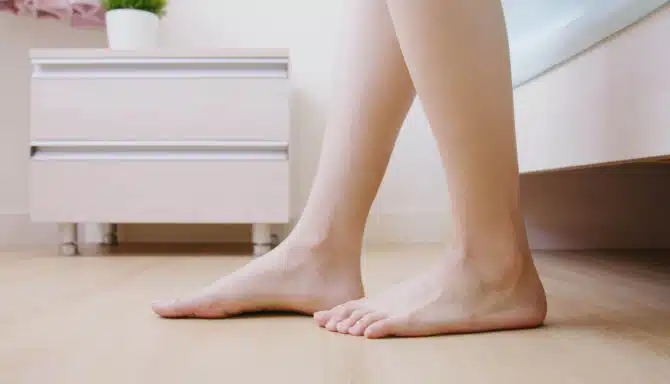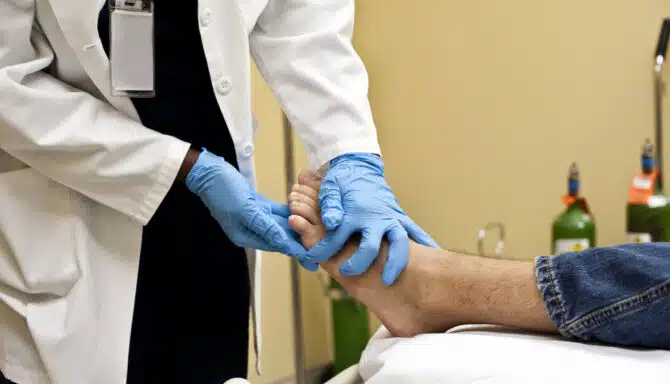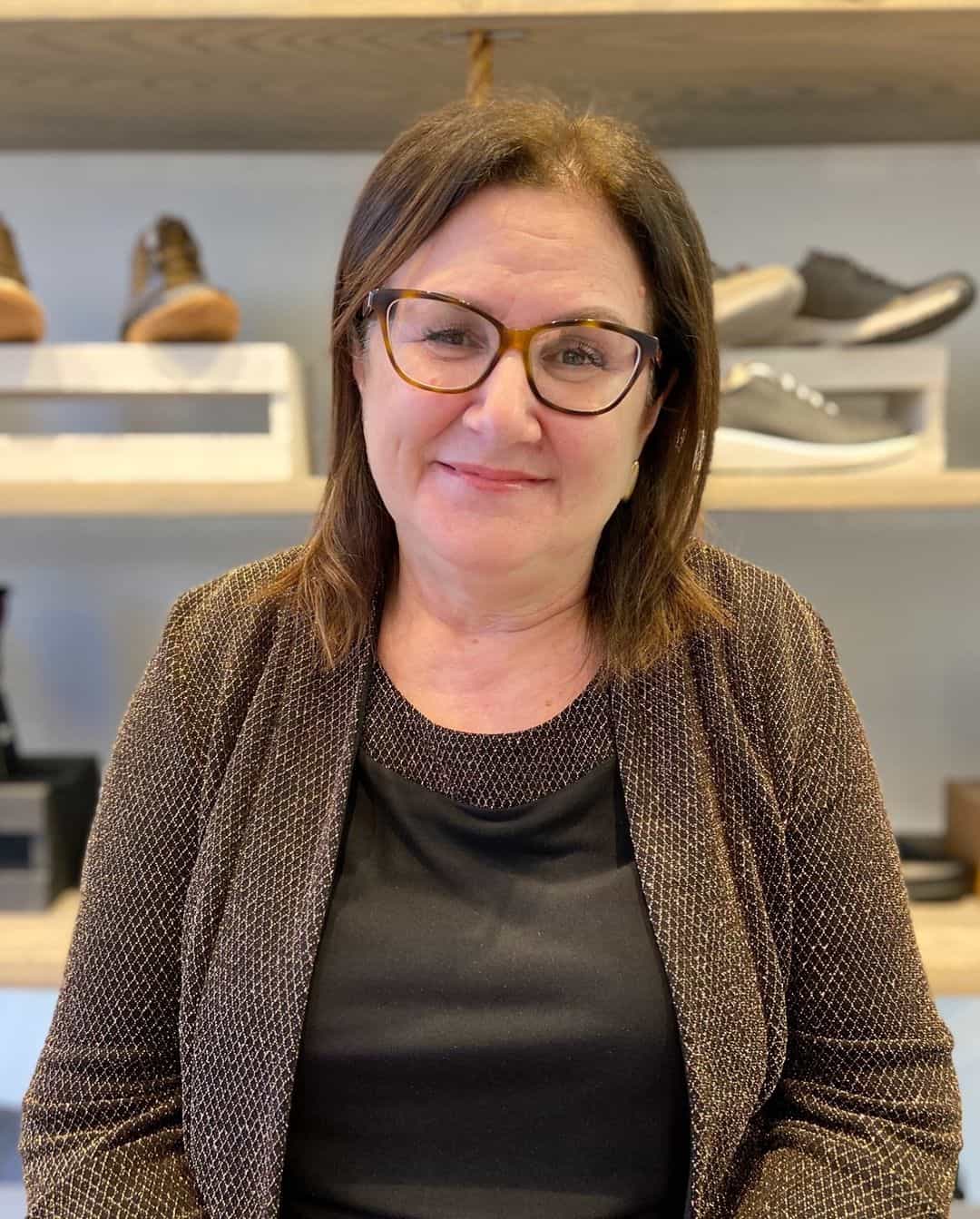April 3, 2025
Healthy toenails need healthy circulation, but when blood flow is compromised, they can become brittle, discoloured, or grow slowly. Additional toenail conditions can also develop. Poor circulation and toenail problems are closely linked, especially for those with health problems like diabetes or peripheral artery disease. Understanding why poor blood flow affects toenails can help you take the right steps to protect your foot health and prevent complications.
https://www.youtube.com/shorts/3JAUqiqJfus
The Importance of Blood Circulation
In order to understand the link between poor circulation and toenail issues, we have to start by understanding what blood flow is and what it does. The circulatory system, comprising the heart, blood vessels, and blood, serves as the body's transportation network. Its primary function is to deliver oxygen and essential nutrients to cells while removing waste products like carbon dioxide.
The heart pumps oxygen-rich blood through arteries, which branch into smaller arterioles and capillaries, reaching every tissue and organ. This process ensures that each cell receives the necessary components for energy production, growth, and repair.
Efficient blood circulation is vital for overall health. Oxygen transported by red blood cells is crucial for cellular respiration, the process by which cells generate energy. Nutrients absorbed from digested food are distributed via the bloodstream to support various bodily functions.
Key nutrients delivered by the bloodstream include:
Glucose: A simple sugar derived from carbohydrates in our diet, glucose serves as the primary energy source for cells, fueling various physiological processes.
Amino Acids: These are the building blocks of proteins, obtained from the digestion of dietary proteins. Amino acids are crucial for tissue growth, repair, and the synthesis of enzymes and hormones.
Fatty Acids and Lipids: Essential components of cell membranes and energy storage molecules, fatty acids and lipids are transported to cells for incorporation into cellular structures and for energy production.
Vitamins and Minerals: These micronutrients support a range of cellular functions, including maintaining bone health and facilitating nerve transmission.
Hormones: Although not nutrients in the traditional sense, hormones are vital signaling molecules transported by the circulatory system to regulate various physiological activities, such as metabolism, growth, and mood.
Impaired circulation can slow down healing processes—even for seemingly innocent and minor problems like cuts and scrapes. Likewise, organs and tissues deprived of adequate circulation can suffer damage over time, increasing the risk of conditions such as peripheral artery disease, stroke, and heart attacks.
Toenail Health and Circulation: The Connection
The circulatory system delivers oxygen and essential nutrients to the nail beds, supporting the growth and maintenance of strong, clear nails. When blood flow is compromised, the nails may not receive adequate nourishment, leading to various issues such as brittleness, discoloration, and slowed growth. In some cases, poor circulation can cause nails to develop ridges, indicating underlying vascular problems.
Reduced blood flow can also increase the risk of infections like toenail fungus (onychomycosis). A weakened circulatory system impairs the body's ability to combat pathogens, making the toenail environment more susceptible to fungal overgrowth. This often results in yellowed, thickened nails that you can’t treat without the help of a chiropodist or podiatrist. They must remove the infected portion of the nail so they can apply the correct medicine.
Poor blood flow on its own may not cause a problem with your foot health, but it can contribute to the following toenail conditions:
Slow or halted nail growth: Inadequate blood flow deprives the nail matrix of essential nutrients and oxygen, resulting in reduced or ceased toenail growth. This can be very frustrating if your toenail falls off or cracks and you’re waiting for it to grow back, leaving your feet vulnerable.
Brittle and discolored nails: Insufficient circulation can cause nails to become brittle and change color, often appearing yellowed or darkened.
Thickened nails: Poor blood flow may contribute to the thickening of toenails, often via toenail fungus, making them difficult to trim and maintain. Poor blood flow also affects the nail growth process, which can cause nail cells to pile on top of each other and lead to thicker toenails.
Ingrown toenails: While not directly caused by poor circulation, individuals with compromised blood flow, such as those with diabetes, are at higher risk for complications from ingrown toenails, including infections and delayed healing.
Diabetes, Toenail Health and Circulation
Diabetes can lead to two significant complications affecting foot health: diabetic neuropathy and peripheral artery disease (PAD). Diabetic neuropathy results from prolonged high blood sugar levels damaging the nerves, particularly in the legs and feet, causing numbness, tingling, or a loss of sensation.
This diminished sensitivity means that innocent injuries, such as cuts or blisters, may go unnoticed, increasing the risk of infections and complications like ulcers, or in severe cases, life threatening problems like gangrene, which require amputation. This is also the case for seemingly minor problems with the toenails. Simultaneously, PAD causes blood vessels to narrow and harden, reducing blood flow to the extremities. This impaired circulation hampers the delivery of oxygen and essential nutrients needed for healing, making the feet and toenails even more susceptible.
Regular foot inspections and nail care with a chiropodist or podiatrist, maintaining proper hygiene, and promptly addressing any abnormalities are crucial steps for diabetics to prevent toenail-related complications stemming from poor blood flow.
https://www.youtube.com/shorts/QFWBwM6mGqM?feature=share
Foot and Nail Care for Poor Circulation
Maintaining proper foot and nail care is essential for individuals experiencing poor circulation, as reduced blood flow can lead to various complications. Here are some recommended practices and treatments:
https://youtu.be/5PCZuM5E6RU
Regular Exercise: Maintaining good circulatory health through regular exercise, a balanced diet, and avoiding smoking is essential for ensuring that the body's systems function as well as possible. One of the best circulation maintenance tips for foot health is working the muscles in the lower extremities. Exercises like toe splays, toe flexes and raises, massage ball rolls, pen pick-ups and seated toe pulls can work wonders. Click here to learn the five best foot exercises to improve blood circulation. They’re particularly helpful in the winter, but are useful all year round.
Regular Self Inspections: Conduct daily checks for cuts, sores, or changes in nail color and texture to detect issues early.
Moisturizing: Keep feet hydrated to prevent cracks and fissures that can lead to infections. Learn how to moisturize properly here.
OnyFix Nail Correction System: For those with ingrown or involuted toenails, the OnyFix system offers a non-invasive, pain-free solution. This innovative treatment involves applying a composite material to the nail, which helps guide it back to its natural shape as it grows, without the need for surgery. It's suitable for various nail shapes.
Medical Pedicures: Unlike traditional cosmetic pedicures, medical pedicures are performed by trained foot care professionals, such as chiropodists or podiatrists, in a sterile environment in a foot clinic. They focus on health, addressing issues like nail trimming, callus reduction, and infection prevention. They are especially helpful for dealing with irregular shaped toenails caused by poor circulation - cutting and maintaining these on your own can be very difficult. For people with diabetes, who are at higher risk for foot complications due to poor circulation and neuropathy, medical pedicures are a common and recommended treatment. These specialized pedicures help prevent complications like infections or ulcers by ensuring meticulous foot care.
Proper Footwear: Wear well-fitting shoes that provide adequate support and reduce pressure points to promote better circulation.
Proper Nail Trimming: Trim nails straight across and avoid cutting them too short to prevent ingrown toenails. And if your toenails are too thick or difficult to cut on your own, book an appointment with a foot specialist.
